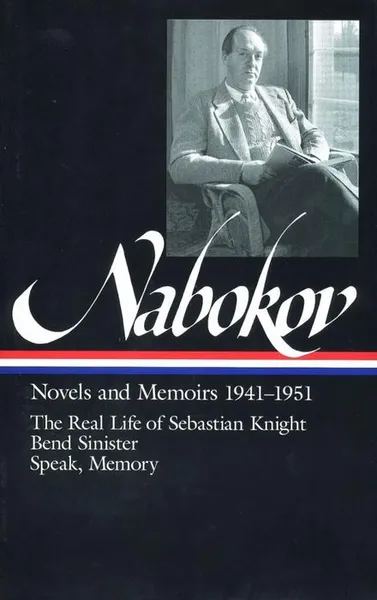Nabokov: Novels and Memoirs
📒 The Real Life of Sebastian Knight, the first novel Vladimir Nabokov wrote in English, published a year after he moved to the United States, is a tantalizing literary mystery in which a writer's half brother searches to unravel the enigma of the life of a famous author. A characteristically cunning play on identity and deception, this novel was published in 1941.
Bend Sinister (1947), Nabokov's most explicitly political novel, is the haunting, dreamlike story of Adam Krug, a quiet philosophy professor caught up in the bureaucratic bungling of a totalitarian police state. "I am neither a didacticist nor an allegorizer," Nabokov affirms in his introduction to the novel, but goes on to state: "There can be distinguished, no doubt, certain reflections in the glass caused by idiotic and despicable regimes that we all know and that have brushed against me in the course of my life: worlds of tyranny and torture, of Fascists and Bolshevists, of Philistine thinkers and jack-booted baboons."
Speak, Memory: An Autobiography Revisited (1951; revised 1966), Nabokov's dazzling memoir of his childhood in imperial Russia and exile in Europe, is central to an understanding of his art. With its balance of inner and outer worlds--of family chronicle and private fantasy, revolutions and butterflies, the games of childhood and the disasters of politics--the work that Nabokov called "a systematically correlated assemblage of personal recollections" is a haunting transmutation of life into art.
The texts of this volume incorporate Nabokov's penciled corrections in his own copies of his works and correct long-standing errors. They are the most authoritative versions available and have been prepared with the assistance of Dmitri Nabokov, the novelist's son.
Bend Sinister (1947), Nabokov's most explicitly political novel, is the haunting, dreamlike story of Adam Krug, a quiet philosophy professor caught up in the bureaucratic bungling of a totalitarian police state. "I am neither a didacticist nor an allegorizer," Nabokov affirms in his introduction to the novel, but goes on to state: "There can be distinguished, no doubt, certain reflections in the glass caused by idiotic and despicable regimes that we all know and that have brushed against me in the course of my life: worlds of tyranny and torture, of Fascists and Bolshevists, of Philistine thinkers and jack-booted baboons."
Speak, Memory: An Autobiography Revisited (1951; revised 1966), Nabokov's dazzling memoir of his childhood in imperial Russia and exile in Europe, is central to an understanding of his art. With its balance of inner and outer worlds--of family chronicle and private fantasy, revolutions and butterflies, the games of childhood and the disasters of politics--the work that Nabokov called "a systematically correlated assemblage of personal recollections" is a haunting transmutation of life into art.
The texts of this volume incorporate Nabokov's penciled corrections in his own copies of his works and correct long-standing errors. They are the most authoritative versions available and have been prepared with the assistance of Dmitri Nabokov, the novelist's son.
Мнения
